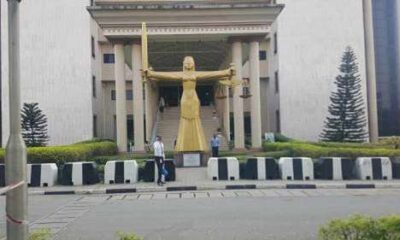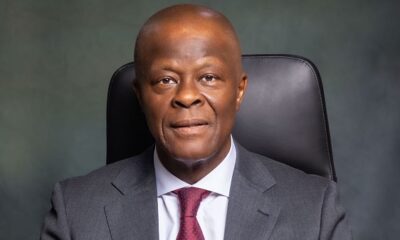Africa’s global bank, United Bank for Africa (UBA) Plc, and leading Pan-African Payments Company Cellulant have announced a partnership that will extend payment services for merchants and consumers across 19 key African countries in which UBA operates. These countries include Nigeria, Ghana, Kenya, Côte d’Ivoire, Zambia, Tanzania, Uganda, the Republic of Benin, Burkina Faso, Cameroon, Chad, Congo, the Democratic Republic of Congo, Gabon, Guinea, Liberia, Mozambique, Sierra Leone, and Senegal.
This network represents one of the primary tools in bringing together Africa’s fragmented payments ecosystem, ensuring Cellulant’s Payment Gateway, Tingg, is available to a vast number of merchants and consumers in each of these markets.

Already over US$10bn in gross value payments are processed by Cellulant across the shared markets – and this partnership has the scope to expand the numbers significantly.
“We are delighted to welcome the United Bank for Africa as a new banking partner,” says Akshay Grover, Group CEO at Cellulant. “As the payments landscape in Africa continues to evolve, we believe that FinTech’s and banks need to have a deeper collaboration in expanding opportunities that will help ease payments & collections for businesses and their consumers across all sectors of the economy.”
“The partnership with UBA extends our unparalleled reach across the continent and gives merchants and consumers in our shared network the opportunity to enjoy streamlined digital payments services directly through their bank.”

Speaking on the partnership, Group Deputy Managing Director, United Bank for Africa, Oliver Alawuba, said: ‘We are happy to welcome Cellulant to Nigeria for this MoU signing and most importantly into UBA’s expansive landscape. UBA is ready we are indeed set to dominate the entire digital banking space in Africa. “Our bank as you know, is one of the largest financial services institutions in Africa, providing services to over 25 million customers in 23 countries 20 of which are on the African continent. This speaks to our strength and capability in terms of delivering innovative digital solutions to the last mile”.
He continued, “As the needs of our customers change, we are consistently readapting innovative solutions and partnerships to provide them with excellent and convenient services. With our strategic partnerships, we can accelerate the drive for financial inclusion and the economic wellbeing of Africans on the continent. As a customer-focused bank, we are dedicated to ensuring first-rate customer service to all our customers as well as fashion out the best possible ways to ease the way they transact”.

Alawuba during the signing ceremony at the UBA House in Lagos noted that “Collaborating with Cellulant will allow for maximum impact when it comes to changing lives and introducing smarter ways for people to make payments in Africa”.
The announcement is the latest in a line of new partnerships for Cellulant, as it continues to expand its network with leading financial institutions like UBA. The company’s payments platform, Tingg, now available via 120 banks, is a one-stop payment aggregator for multinational corporations, mid-caps, and small and medium enterprises (SMEs) alike.
‘Our partnership with UBA is an opportunity to further simplify the payment experience for businesses looking to collect payments online or offline. This is particularly impactful for businesses who face daily administrative challenges because of the industry’s fragmentation.” says David Waithaka, Chief Revenue Officer at Cellulant.
The platform enables merchants to receive, view, and reconcile all their payments via a single application programming interface (API), cutting out the need to sign up for multiple different payment providers including mobile money, mobile network operators (MNOs).
This simultaneously streamlines businesses’ administration processes while expanding the range of payment options they can offer to consumers, ensuring maximum choice and flexibility both offline and online.
“By offering a one-stop-shop payments platform through UBA across the 19 countries it is present in Africa, we are opening up the possibility for merchants to seamlessly accept payments from a huge range of payment methods (banks, mobile money, and cards), whilst managing all their back-office processes in one place. Local, regional, and global businesses can now focus on growth and expansion across Africa.”
About Cellulant
Cellulant is a leading pan-African payments company that provides locally relevant and alternative payment methods for global, regional, and local merchants across 35 countries. The company provides a single API payments platform that enables businesses to collect payments online and offline while allowing anyone to pay from their mobile money, local and international cards, or directly from their bank.
About UBA
United Bank for Africa Plc is a leading pan-African bank offering banking services to more than twenty-five million customers, across over 1,000 business offices and customer touchpoints, in 20 African countries and globally with operations in the United States of America, the United Kingdom, and France. UBA is connecting people and businesses across Africa through retail; commercial and corporate banking; innovative cross-border payments and remittances; trade finance and ancillary banking services


 BIG STORY15 hours ago
BIG STORY15 hours ago
 BIG STORY14 hours ago
BIG STORY14 hours ago
 BIG STORY1 day ago
BIG STORY1 day ago
 BIG STORY5 days ago
BIG STORY5 days ago
 BIG STORY5 days ago
BIG STORY5 days ago
 BIG STORY1 day ago
BIG STORY1 day ago
 BIG STORY10 hours ago
BIG STORY10 hours ago
 BIG STORY2 days ago
BIG STORY2 days ago

























